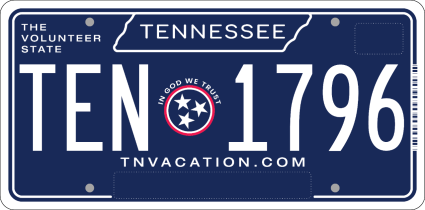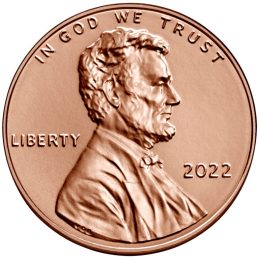In God We Trust … but How Much?
 We are getting new license plates in Tennessee. That’s not exactly earth-shaking news, but when your turn comes for the new plate, you’re given an option between two plates. Both plates look exactly the same, except one includes “IN GOD WE TRUST” in small letters.
We are getting new license plates in Tennessee. That’s not exactly earth-shaking news, but when your turn comes for the new plate, you’re given an option between two plates. Both plates look exactly the same, except one includes “IN GOD WE TRUST” in small letters.
This makes it easier for me to judge other drivers. I can now spot the pagan drivers who might switch lanes quickly and cut me off. Of course, if an “In God we trust” car cuts me off, I wave them on, assuming the driver is late for a prayer meeting.
I wonder, though, what we really mean when we say we trust in God. Sure, as Christians, we trust God for salvation, but what does that trust look like in our everyday lives?
In the Old Testament, we see a people who proclaimed trust in God. They had the law; they had the temple which proclaimed God’s presence among them. By golly, they were even God’s covenant people—the chosen people! But God said this about them:
“These people approach me with their speeches to honor me with lip-service, yet their hearts are far from me” (Isa. 29:13).
During the time of the prophets, both Israel and Judah were routinely condemned because they kept chasing after idols. We tie idols to false worship, but the issue was more than a matter of misplaced worship; it was also misplaced trust. Worship and trust are closely intertwined. As I experience God as He has revealed Himself in the Word, I am drawn both to worship Him and to trust Him. He proves Himself to be worthy of my trust, and that moves me to worship.
When we fail to actively trust Him and worship Him, we will fill that void with something else. We’re drawn to worship, and if we don’t focus on the only One worthy of our worship and trust, we’ll focus on someone or something else.
That’s what the people in Jeremiah’s day did. Through the prophet, God spoke of the trust the people once had in Him.
“I remember the loyalty of your youth, your love as a bride—how you followed me in the wilderness, in a land not sown” (Jer. 2:2).
Unfortunately, they took their eyes off their God and placed their trust elsewhere.
“What fault did your ancestors find in me that they went so far from me, followed worthless idols, and became worthless themselves? They stopped asking, ‘Where is the Lord who brought us from the land of Egypt, who led us through the wilderness, through a land of deserts and ravines, through a land of drought and darkness, a land no one traveled through and where no one lived?’
“I brought you to a fertile land to eat its fruit and bounty, but after you entered, you defiled my land; you made my inheritance detestable. The priests quit asking, “Where is the Lord?” The experts in the law no longer knew me, and the rulers rebelled against me. The prophets prophesied by Baal and followed useless idols” (vv. 5-8).
What catches my attention is the emptiness of their misplaced truth.
“For my people have committed a double evil: They have abandoned me, the fountain of living water, and dug cisterns for themselves—cracked cisterns that cannot hold water” (v. 13).
“Now what will you gain by traveling along the way to Egypt to drink the water of the Nile? What will you gain by traveling along the way to Assyria to drink the water of the Euphrates? (v. 18).
Do you hear God’s plea in this: What will you gain?
The bottom line is this: Place your trust in these lands, these people, and their idols, and you will be disappointed.
That’s a truth we still need to remember. We’re good at giving lip-service to our trust in God, but our actions show how we often …
… we trust in ourselves. We think, “I can handle this,” and then jump in without praying or expressing our dependence on God.
… we trust in others. We should have people in our lives who are trustworthy, but the best among us will still let us down.
…  we trust the economy … or our retirement plan … or an investment. I’m not one for sticking my money under a mattress, but despite our best financial wizards and advisors, we can’t say with any certainty that the financial support we’re resting in now will be there next week.
we trust the economy … or our retirement plan … or an investment. I’m not one for sticking my money under a mattress, but despite our best financial wizards and advisors, we can’t say with any certainty that the financial support we’re resting in now will be there next week.
… we trust our government leaders. When the ones we voted for are in office, we assume they will do the right thing. That’s why we voted for them, right?
I’m not saying trust in ourselves, others, or anything is necessarily bad, but such trust needs to be held loosely. Our trust in God must precede everything else. He is trustworthy, and He is the only One who can protect us, hold us, and give us what we need.
“For the word of the Lord is right, and all his work is trustworthy” (Ps. 33:4).
“Commit your way to the Lord; trust in him, and he will act” (Ps. 37:5).
What does “IN GOD WE TRUST” look like in your daily life?
Subscribe to this blog or like our Facebook page. And share this post with others.
If you would like a printable version of this, check out PrintFriendly.com.




